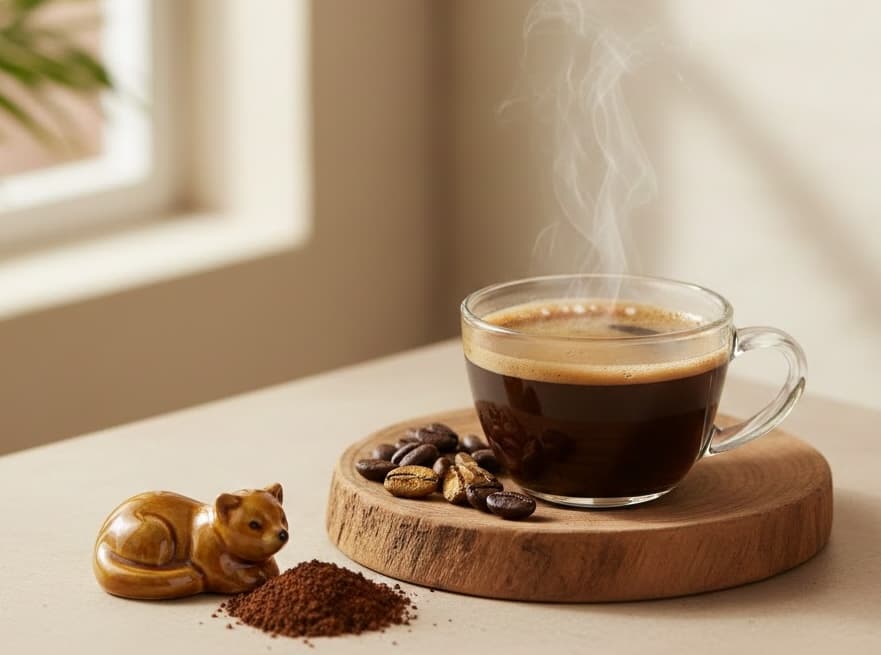Civet Coffee: The Luxury Brew with a Wild Backstory
Civet coffee, or kopi luwak, is one of the most exotic and expensive coffees in the world, but also one of the most controversial. Known for its unique production process involving the Asian palm civet, this coffee sparks fascination, debate, and curiosity from coffee connoisseurs and casual drinkers alike.

200+ buyers trust Torg for sourcing

What Is Civet Coffee?

Civet coffee is made from coffee cherries that have been eaten and excreted by the Asian palm civet, a small, cat-like mammal native to Southeast Asia. The civet’s digestive enzymes ferment the beans as they pass through the animal’s system, altering the chemical structure and purportedly enhancing the flavor by reducing bitterness and increasing smoothness.
After being collected from the droppings, the beans are thoroughly cleaned, fermented again, dried, roasted, and ground, just like regular coffee beans.
Origins and Cultural Roots
The practice of making civet coffee dates back to colonial Indonesia in the 18th century. Local farmers were forbidden from harvesting coffee for their use, but they discovered that civets would eat the cherries and leave the beans behind in their droppings. Curious, they cleaned, roasted, and brewed the beans and discovered a rich, aromatic coffee unlike anything they had tasted before.
Since then, kopi luwak has gained a cult following, especially among luxury consumers in Japan, the U.S., and Europe.
Flavor Profile
Civet coffee is often described as:
- Smooth and low in acidity
- Mild in bitterness
- Earthy, musty, or chocolaty
- Rich in aroma with complex flavors
However, experts are divided on whether these characteristics are truly due to the civet’s digestion or more influenced by bean variety, processing, and roast profile. Explore more coffee suppliers here.
The Ethical Debate
Despite its mystique, civet coffee has become a source of ethical controversy. As global demand surged, many producers began capturing civets and keeping them in cages to mass-produce kopi luwak. This has raised serious concerns:
- Animal cruelty: Civets are often kept in poor conditions and fed only coffee cherries, an unnatural diet.
- Biodiversity impact: Overexploitation threatens wild civet populations and local ecosystems.
- Authenticity: Much of the civet coffee on the market is fake or mislabeled.
In response, some companies have turned to wild-sourced or certified ethical civet coffee, but these remain rare and extremely costly, sometimes selling for $300–$600 per pound.
Market Status and Trends

- Main producers: Indonesia, the Philippines, Vietnam, and India.
- Top buyers: Japan, South Korea, U.S., U.K., and UAE.
- Price range: $100–$1,000 per kg, depending on origin and sourcing method.
- Niche appeal: Mostly sold in luxury coffee shops, hotels, and premium online retailers.
Despite declining buzz due to ethical concerns, kopi luwak continues to be marketed as a novelty or prestige item, often gifted or showcased as a conversation piece.
The Future of Civet Coffee
The industry is at a crossroads. Growing awareness around animal welfare and sustainability is forcing producers to reexamine their practices. Future success may hinge on:
- Transparency and third-party certification
- Lab-based fermentation alternatives mimicking the civet process
- Stronger consumer education and traceability
Civet coffee may never be a mainstream brew, but it remains a fascinating symbol of how far we’ll go in search of the perfect cup and what trade-offs we must consider along the way.

Arutala Coffee
Company Name – Arutala Coffee
Headquarters – Indonesia
Core Products – Arutala Arabica Luwak (Civet) Wild Gayo
Arutala Coffee is all about bringing exceptional coffee to everyday life, and their Arabica Luwak (Civet) Wild Gayo is a perfect example. Handled with care from start to sip, this rare brew starts its journey with wild civets in Gayo, who naturally select the ripest coffee cherries. The result? A smooth, low-acid coffee with earthy, chocolatey notes and a story that’s just as rich as its flavor.
Founded in 2019 from a deep love of coffee, Arutala has sold over 500,000 packs across Indonesia and earned the Top Brand Award two years in a row. They’re committed to quality roasting, sustainability, and supporting local farmers, making every cup a win for both you and the planet.
Request a Bulk Order Quote
Simple ordering, transparent pricing, delivered straight to your door

